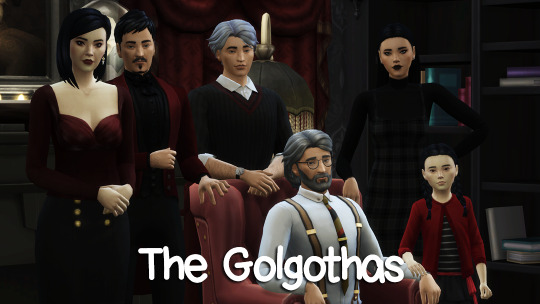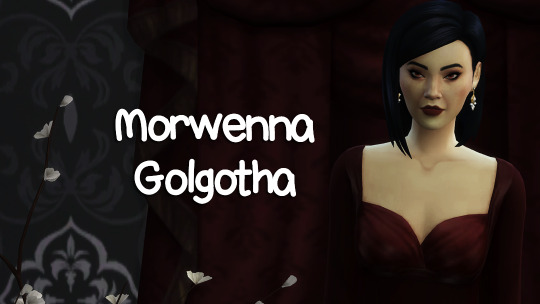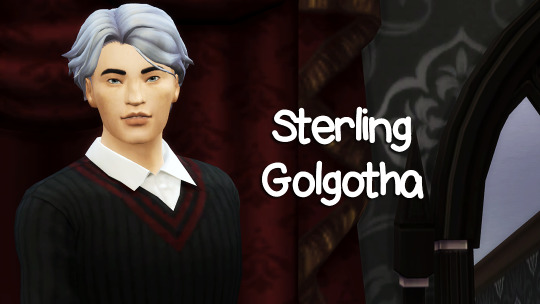#Miriam Golgotha
Explore tagged Tumblr posts
Text

Ayons une conviction dans notre cœur et ne soyons pas dans la compromission :
NOËL EST UNE FÊTE DE TRADITION HUMAINE DONC PAÏENNE 👉
Jésus n'est pas né un 25 décembre, car les moutons étaient dans les champs lors de sa naissance.Or en Israël il fait froid le 25 décembre et les moutons sont parqués.
YESHUA est né le 1er soir de la fête du TABERNACLE ou fête des HUTTES après le coucher du soleil ( donc fin septembre, début octobre) dans une tour étable réservée à l'élevage de troupeaux à EPHRATA jouxtant BETHLÉEM ( ville des rois ) , le soir de la convocation de DIEU aux hommes et de la PRÉSENTATION des BÉNÉDICTIONS devant L'ÉTERNEL.
Le lieu de la naissance de l'accouchement de Marie (Miriam ) est connu car c'est le lieu où les Lévites avec les bergers élevaient les brebis pour les sacrifices à JÉRUSALEM ( Eze: 36 : 37 ) et Michée 4: 8 .
Les agneaux étaient emmaillotées pour éviter toute souillure et sans défaut :
Sans ride , ni tache !
C'est pourquoi YESHUA ( DIEU SAUVE ) était emmailloté ,
PRÉFIGURATION de ce qu'Il allait être :
L'AGNEAU DE DIEU SACRIFIÉ À LA CROIX ✝️ COMME UNE BREBIS MUETTE, SANS AVOIR CONNU LE PÉCHÉ :
ROI, SACRIFICATEUR, ET SEIGNEUR !
👉CAR UN ENFANT NOUS EST NÉ, UN FILS NOUS EST DONNÉ
Oui sa domination reposera sur ses épaules !
,C'EST CHAQUE JOUR ET ÉTERNELLEMENT CAR LA PAROLE EST PERPÉTUELLE ! 🔥✝️❤️
IL EST NÉ CHAQUE JOUR , SAUVEUR À
✝️PERPÉTUITÉ ✝️
C'EST CELA LE MESSAGE DIVIN 🔥🙏!
Par contre, la coutume paÏenne de fêter le solstice d'hiver a perduré jusqu'à nous et Constantin le Grand vers l'an 300, n'a eu qu'à faire coïncider les deux ( naissance supposée de Christ et Bacchanales, Saturnales, fêtes aux origines babyloniennes :
Ainsi les gens s'adonnaient aux plaisirs de la chair, orgies, banquets et beuveries...
De nos jours, Noël est une fête commerciale, pour faire du chiffre, tout est organisé pour que les gens achètent des cadeaux en tout genre, viennent s'ajouter les décorations intérieures et extérieures, les sapins....Et le Père Noël , inventé par Coca Cola , lui même provenant d'une légende nordique et là, il n'était pas rouge mais vert!
Saint Nicolas ou Santa Claus : Inversé cela donné Satan , bref des personnages sympathiques ....Oui
Et Jésus dans tout ça ?
Je pense que beaucoup n'y pense même pas, obnubilés qu'ils sont par leurs fêtes, cadeaux et repas..( Chacun est libres ....mais pensez y )!
Pourtant, si on voulait, même si Jésus n'est pas né à Noël, on pourrait se préoccuper de nos voisins, de personnes âgées délaissées et des plus démunis...
De faire ce que Jésus aurait fait :
Avoir compassion pour autrui et partager.
Mais l'esprit de ce monde est dans l'orgueil et la représentation pas dans le recueillement et l'humilité.
ADORER L'ENFANT JÉSUS BÉBÉ : 👉
Jésus : SAUVEUR ! Il l' était en devenir .....
PRÉFIGURATION de l'agneau sacrifié ,
Or nous avons à adorer un homme fait qui a reçu le Saint Esprit 🔥 de son Père du Ciel pour accomplir sa mission sur la terre : celle de faire connaître qui était le Père ,
Ensuite , le but ultime était que Jésus soit l'Agneau de Dieu , qu'il meurt en sacrifice pour vaincre la mort et nos péchés afin de nous racheter définitivement et Il n'y avait que Lui qui pouvait le faire : Lui vrai HOMME et VRAI DIEU !✝️❤️
Il a tout accompli à la croix de Golgotha et Il nous a réconciliés avec le Père .
Il est notre PÂQUE, le PAIN DE VIE , celui qui mange de ce pain là , vivra ,
Celui qui boit de la coupe du sang de l'Alliance nouvelle, ce sang versé à la croix, est renouvelé, il est une nouvelle création, il appartient à Christ ✝️.
Christ est la seule PORTE DU SALUT ! et pas le petit Jésus !!!!!!
Le pape représente Jésus en bébé : c'est une idolâtrie ! On adore Christ ! ✝️: LA CROIX !
Lui le Chemin, Lui la Vérité, lui la Vie ! Nul ne va au Père que Lui ( Jean 14 -16 ) .
PLAIRE À DIEU ET LE CRAINDRE ! 👉
Pour rencontrer vraiment Le Seigneur ✝️, il faut aimer son prochain, il faut lui plaire.. Ne pas être dans l'ostentatoire mais dans la simplicité et la fidélité.
2 Corinthiens 10 (17) "
QUE CELUI QUI SE GLOIRIFIE, se glorifie 💜dans le Seigneur.
Car, ce n'est pas celui se recommande lui-même qui est approuvé '
Ne bâtissez pas des autels à des dieux étrangers ( sans le savoir ) , Satan se réjouit et Dieu est attristé de voir ces fêtes en son Nom !
N'avez-vous pas toute l'année pour faire des cadeaux à vos êtres chers et des bons repas ? Si !
Alors faites pareil pour le 25 décembre...comme vous faites pour vos proches avec attention !
Le Seigneur n'interdit pas des réunions et des repas de famille mais attention de ne pas tomber dans la SÉDUCTION DU MONDE
Que le Saint Esprit 🔥 qui vit en ceux qui aiment et servent Le Seigneur Jésus Christ ✝️ vous éclaire et vous guide !
Soyez Bénis mes Bien-aimés Amis, frères et sœurs en Christ, dans le Nom Puissant et parfait de JÉSUS-CHRIST de NAZARETH ✝️❤️🔥
Amen ❤️
Ghislaine Wackenier
0 notes
Photo



Walter and Miriam Golgotha
Walter Golgotha’s story is a very interesting one, fitting for such an interesting old soul. He grew in a very fortunate, but relatively normal family. They had never been short of money, or love, and Walter had blossomed into a fine young man by the time that he left school. After living in Windenburg his whole life, he couldn’t face the thought of leaving, and luckily, neither could Miriam. His love of literature and thirst for knowledge flourished into an extremely successful writing career, and with a loving wife at his side and two beautiful sons, Walter couldn’t have led a happier life.
That is where the normalities stop though.
This may be Walter’s introduction, but without Miriam and her story, Walter would have nothing. She was, and still is, everything to him. And her narrative changed his whole life.
The Von Haunt Estate has always been a well-known icon of Windenburg, everyone is fascinated by the rumours that drift through the town and speculation over its history only grows as time moves on. The story on everyone’s lips is that Lord Bernard Shallot, a troubled artist, started a great blaze after throwing one of his failed pieces into the fire, which killed both him and his wife Mimsy. And as tragic as that tale may be, it was far from the truth.
Miriam Von Haunt was her parents’ only child, and from the moment that she was born she became the light of their lives. She grew up in the family’s huge estate, often lonely because, despite the house’s immense size, very few people were ever there. When she reached eighteen her relationship with her parents changed dramatically though, all because they arranged for her to marry a close family friend’s son, Lord Bernard Shallot, completely against her will. Arguments became almost instinctive, and the distance from her parents, along with the loveless engagement that she had been forced into, made her unbearably miserable. That is, until she stumbled across a quiet, yet charming writer sat in the public gardens.
Love at first sight doesn’t even begin to explain Miriam and Walter’s first encounter. They fell head over heels in love with each other from the second that they were first in each other’s company, and from then on Miriam snuck out of the house to spend every waking moment with Walter. They would lay on the grass in a little inlet between the hedges, surrounded by bright flowers, under a sea of wispy clouds, and would dream about their future together. With Walter’s wild imagination he could captivate Miriam for hours, intently describing details of the house that they would one day share together, reciting love poetry and spinning stories about how one day they would run away and forget all their worries. But first, they had to get around the problem of Miriam’s betrothal.
Bernard’s bursts of anger occasionally reared their ugly heads at the start of his relationship with Miriam, but now they were getting more and more frequent, and more violent too, often scaring Miriam senseless. Although her parents had tried to see past them at first, they were now becoming too wild for them to continue ignoring. And even though her engagement to Bernard had broken her relationship with them, his aggressive outbursts were repairing it. When she couldn’t run to Walter, Miriam had no other choice but to go to her parents for some support through it all, and after seeing how dispirited she had become, they knew that they had to do something. They couldn’t bear to see their daughter this miserable any longer.
One evening, after a particularly bad argument between her and Bernard, when Miriam was sat with her parents, the truth about where she spent her days, and who she spent them with, came tumbling out. And when her parents saw the way that her face lit up when talking about Walter, they knew that this was the only man that would ever make their daughter as happy as she deserved to be. They met him for dinner the next day and, when Miriam asked for their opinion, they couldn’t find a fault in him. Thrilled, the four of them returned home, knowing that they would have to break the news to Bernard and his parents. They knew that it wouldn’t be easy, but nothing could have prepared them for what happened that evening.
As soon as Walter stepped through the front door, Bernard began barking questions, but Miriam managed to quieten him until her parents had notified his, and they had started to make their way over to the estate. After explaining everything to the Shallots, Bernard’s parents were surprisingly understanding, but Bernard himself took the news terribly and tumbled into a despair-fuelled rage that was terrifying for even his parents to see. He raved about his love for Miriam and Miriam argued that it was unrequited, he produced countless sketches of her and love letters addressed to her and started screaming about how much he did for her and how he got nothing in return, how it meant nothing to her. And then the argument took a turn, quite a dramatic one. Bernard threw the papers into the fire, well, in the general direction of the fireplace, and before he knew it, the flames from the fire were licking at the letters strewn across the logs, and the ones laid helplessly on the floorboards.
Panic started to set in for everyone in the room, but the fire was quicker than any of their reactions and hungrily tore across the floor. Bernard scrambled to try to move the papers, or put the flames out, but all it took was one wrong step for a flame to brush against his jacket and his whole body to become engulfed in the flames.
Miriam’s screams were drowned out by Bernard’s parents’, and as they, and her parents rushed to help him, the fire just swelled and swelled. Miriam was frozen in place, despite the room burning around her. Walter finally managed to come to his senses though and grabbed her arm, bundling her into the hallway. With smoke already spilling through the closed door, Walter knew that they were still in danger. That fire was burning so fiercely that it would take over the house in mere minutes. He had to get them out. And although Miriam was very reluctant to leave her parents, she knew deep down that there was no way that they would be able to rescue them now. And so, she took Walter’s hand and they fled to safety.
When rumours started to spread about the fire, Miriam knew that she couldn’t step out anywhere without being questioned. She knew people would think that she had started it, now that the town had become aware of her engagement to Bernard, if they heard that he and his parents had died in a fire, along with her own, and she and her new boyfriend were the only survivors, they were bound to pin her as the chief suspect. So, after some discussion with Walter, she decided to revert back to using her full name: Miriam, opposed to the ‘Mimsy’ the town knew and loved, and quietly marry Walter as soon as possible. With her virtually new identity, she made one venture into town to claim the insurance for the fire and then vowed to live in solitude with Walter in the newly restored Von Haunt Estate, which would soon become to be known as Golgotha Manor.
Walter and Miriam lived a quiet life, far away from the rest of the town up, and raised their two sons, Victor and Mortimer, giving them all the love in their hearts. But despite this, their sons never got along with each other, and their turbulent relationship put a definite strain on their parents. Walter and Miriam loved each other more than words could say, and their sons’ constant arguing could never change that, it did break their hearts more and more every day though.
The day that the ongoing dispute came to a head was when Miriam began to lose all hope for a happy future for her family. Victor and Mortimer’s shouts just got louder and louder, and when the final words were uttered and Mortimer stormed out of the house, and Victor’s life, Miriam completely broke down. When her sons’ hatred for one another had grown so horrifyingly strong that they disowned each other, Miriam didn’t know what to do with herself, and no matter how much Walter tried to comfort her, she was inconsolable.
Walter was still trying to come to terms with his sons’ feud and take care of his wife, who was still grieving the loss of her perfect family, when Victor came to him with the news that he would be marrying Morwenna, and would be trading his life for an eternal future with his vampire girlfriend.
He didn’t know what to do at first, he knew that he had to support his son and his decision, no matter how hard that would be, but his main problem from then on was his wife. She took Victor’s news terribly. Of course she was happy that Victor had found happiness and someone to love, but the fact that he was essentially destroying the life that she had given to him broke her heart beyond repair.
No more than a week later, Miriam died of seemingly nothing other than that broken heart. With her sons despising each other and ruining the beautiful lives she had worked so hard to give them, she had truly lost the will to carry on living. And now, it was Walter’s turn to live with a broken heart.
He never got over Miriam’s death, and still went to her grave to talk to her almost every day. But, for her sake, he learned to take each day at a time and keep going. He loved both of his sons the same, and although they were not a part of each other’s lives, Walter made sure that he was a part of both of theirs. He grew to love Morwenna and Bella as if they were his own daughters and loved his grandchildren even more. They seemed to pump the joy of life back into him, and not a single day went by when he didn’t crack a joke to make them chuckle or entrance them with one of his incredible stories.
Walter and Miriam did not lead exactly perfect lives, but they made each other happier than anything else in the world, and that’s all that mattered. They built a life for themselves out of the burnt rubble of the Von Haunt Estate, but created their legacy in the bricks and mortar of Golgotha Manor...
27 notes
·
View notes
Note
Bit of a weird question, but how do translators decide which terms to fully translate and which to romanticize? Like the difference between Akatsuki and Red Dawn? Thanks
I love these kinds of questions.
(First off, just a pedant thing because I cannot stop myself from correcting people and ruining friendships, 曉 akatsuki just means “dawn”, not “red dawn”. Also the word is “romanize” not “romanticize”.)
Ok so now the matter of choice. There are several angles to approach this question from.
First, cross-language interaction and communication is inseparable from larger issues of cultural exchange and principles of same. If you look over history, throughout most of history in Europe and East Asia (my knowledge of other areas is more limited, but I believe the pattern holds), cross-cultural communications of all kinds tended to be self-centric.
What I mean is that the names by which peoples called other peoples, other nations, other locations, etc etc, were not concerned with being accurate to the other peoples’ usage, and that’s being charitable. In fact, names for foreign places and peoples are very frequently deliberately offensive.

Hi China, said Japan. Hi dipshit, said China. Could you call us something else, other than dipshit, said Japan? - Bill Wurtz
Or when they do make an attempt to go off of what the foreign people are saying, they pronounce it according to local language rules. For example up until relatively recently, all across Europe everyone pronounced Latin according to their own language’s pronunciation. If /c/ is pronounced with a soft [s], that’s how they’d say it, or if it’s pronounced with a hard [k], etc. That’s how you get English Caesar versus German Kaiser for example. Or they may otherwise adjust the terms. In England they say Spain and in España they say Inglaterra. And this went so far as to also include individual people’s names. When you read European history in English, the names of rulers, for example, are usually given in their English equivalents: Francis, not Franz or Francisco; Joan, not Jeanne or Giovanna.
Lately (like within the past century-ish), the movement has gradually turned towards verbatim (or as close as possible) reproduction of the foreign people’s terminology for the names of places, peoples, and individual persons. This is inseparable from larger issues of anti-colonization; new principles of equity of peoples, nations, and states; and respect for self-determination.
This might seem like a bit of detour from the topic but I don’t think it is, because to a large extent what this is about is localization vs preservation. These two principles are not precisely opposites but they can often be considered on a scale. And the individual translator’s choices are never made in a vacuum.
Another angle is preservation of foreign terms verbatim is often, though I don’t think usually intentionally, a kind of class or insider signifier. This is more clearly seen historically in how middle and upper classes will use terms from the most prestigious language to show their class and education. In England this was French. Across the world nowadays, it is English.
Japanese has a similar prestige in the Japanese pop culture subculture. I have previously spoken approvingly of transliterating Japanese honorifics, so I’m not by any means opposed to transliteration, but I think it’s important to be aware of what the full implications of using a transliteration “just because you can” are. Do I really think a transliteration does a better job of communicating, or am I just trying to show off that I know the source term, or am I even obfuscating the meaning to keep it understandable only by those who are already in the subculture? (Did I use the relatively obscure word ‘obfuscate’ just now because it’s the best verb for the meaning I want to express, or because I’m obnoxious? Baby it’s a two for one deal.)
(Tangent: meme references can also be seen as a kind of insider signifier in this sense. If I say “using transliteration is all according to keikaku,” and you recognize the reference, and you get that teeny warm glow of amusement, where does that little positive feeling come from? Of course, part of the amusement is remembering the absurdity of the original incident, but there is also a pleasure in being affirmed as in the loop.)

Okay, anyone still with me? Back to Naruto.
So, in modern prevailing culture, most proper nouns from foreign sources are transliterated (romanized). A problem arises when the literal meaning of a foreign word that is conventionally transliterated is thematically or narratively important.
Use of parenthetical glosses and translator’s notes is ancient and very common, from “Golgotha, or the place of the skull” in the Bible to “that too is my nindo, my ninja way” in the official Naruto anime dub.
Another important principle in translating that frequently sways me as a translator of Chinese to English is this: If it doesn’t sound stupid in the source language, it should not sound stupid in the target language.
For example: English, culturally/historically, while not absolutely excluding literal objects in place and people names, is frequently biased against it. Names in English that are like Rose and Pearl Harbor are the exception, or in some cases a novelty, such as the very recent popularity of first names like Phoenix, Cannon, or Rebel. It’s worth pointing out also that in many cases these kinds of names are popularly perceived as downmarket (even trashy) or amusing. Lists of funny place names are often things like Bird-in-Hand, Pennsylvania; Possum Grape, Arkansas; and Big Arm, Montana. This is the case even though many “respectable” names have meanings far more ridiculous than these. No one will laugh if you say your name is Philip; people will laugh if you introduce yourself as Horse Lover. Peter sounds much more respectable than Rock. Mary, Miriam, and Maria are all sweet girls names, even though the literal meaning was Bitter!
Naruto is particularly tricky in this regard because many of its original names do sound funny to native speakers but they don’t sound as weird as they do when translated literally. Uzumaki Naruto, for example, could potentially be selectively over-translated into “Whirlpool Whirlpool”, making him the Moon Moon of shounen heroes. At least Naruto is meant to sound funny in the original; Sarutobi Asuma sounds basically normal in Japanese, but True Tomorrow Monkey Jump sounds like word salad.
Then we get into connotations as well. If Neji were translated to Screw, for example, it would have an unfortunate sexual connotation in English that isn’t there, so that’s another factor that can push towards transliteration.
Now in Naruto translations, including official ones, sometimes use a mix of transliterations and translations for place and organization names. Konoha, the Leaf, the Hidden Leaf Village, and Konohagakure, the Village Hidden in the Leaves, these are all commonly used. Frequently the place is called by the transliteration Konoha whereas the organization is called the Leaf. ANBU Black Ops is another mix of transliteration and translation/gloss, and when it’s reduced to just ANBU, it feels right because it sounds like an acronym which culturally in English is how these kinds of organizations are usually known (eg MI5, SEALs, etc).
Choices in translation are as much about communicating the feel of the original as the meaning.
Anyway I’ve hit my time limit and I need to go to Costco now. I feel like I’ve barely scratched the surface of this topic. Translation is both art and science; it really is a social science, too. This is why machine translation will not replace human translation unless and until AI fully catches up with human sentience.
#how about sunrise land#translation#translation issues#i should have a tag for asks#naruto#japanese#i didn’t even get into chinese in this#curse you costco and your affordable prices and fair wages for staff
236 notes
·
View notes
Text
Jesus, God’s Mountain Man
Matthew 4:8 (ESV)
Again, the devil took him to a very high mountain and showed him all the kingdoms of the world and their glory.
Matthew 5:1–2 (ESV)
Seeing the crowds, he went up on the mountain, and when he sat down, his disciples came to him. And he opened his mouth and taught them, saying:
Matthew 14:23 (ESV)
And after he had dismissed the crowds, he went up on the mountain by himself to pray. When evening came, he was there alone,
Matthew 15:29–31 (ESV)
Jesus went on from there and walked beside the Sea of Galilee. And he went up on the mountain and sat down there. And great crowds came to him, bringing with them the lame, the blind, the crippled, the mute, and many others, and they put them at his feet, and he healed them, so that the crowd wondered, when they saw the mute speaking, the crippled healthy, the lame walking, and the blind seeing. And they glorified the God of Israel.
Matthew 17:9 (ESV)
And as they were coming down the mountain, Jesus commanded them, “Tell no one the vision, until the Son of Man is raised from the dead.”
Matthew 27:33, 35 (ESV)
And when they came to a place called Golgotha (which means Place of a Skull),
And when they had crucified him, they divided his garments among them by casting lots.
It is interesting to me that very often in our Bible, important things happen at or near mountains. Moses was called by God near the mountain of God. He also received the law on a mountain. Miriam and all the women of Israel sang with tambourines of a mountain destination for their peoples. (Exodus 15:17) Elijah had his great victory on a mountain. The ark of Noah rested on a mountain after the flood. Abraham offered Isaac on a mountain. And yet, Jesus Christ is the greatest mountain man of all. Consider his feats on the mountains:
Psalm 78:54 (ESV)
And he brought them to his holy land, to the mountain which his right hand had won.
He has purchased the church and carries her to safety because of his victory at Mount Calvary. All other mountains pale in comparison. For me this is the great high mountain that John spoke of. We cannot have a true perspective on our salvation or our future, if we don’t see it as so:
Revelation 21:10 (ESV)
And he carried me away in the Spirit to a great, high mountain, and showed me the holy city Jerusalem coming down out of heaven from God,
Many men did great things on the mountains of this world, but none went there to shed their own innocent blood for the sins of the entire world. Satan has boasted that he alone would ascend upon the Mountain of God. What shameless boldness and insulting effronteries' he mustered to declare:
Isaiah 14:13–14 (ESV)
You said in your heart, ‘I will ascend to heaven; above the stars of God I will set my throne on high; I will sit on the mount of assembly in the far reaches of the north; I will ascend above the heights of the clouds; I will make myself like the Most High.’
But Christ has made the mountains a place of prayer, of teaching, of healing, of safety and of an eternal sacrifice for all our race. And for those who believe in him and his finished work, ther, in him, is great blessing to be had and held and a wonderous future to be realized. Satan once took Christ to a high mountain to show him the glory of the kingdoms of this world, but Christ turned him down. Now, our glorious mountain man shows us the high and holy city that he has prepared for us.
Luke 4:5–8 (ESV)
And the devil took him up and showed him all the kingdoms of the world in a moment of time, and said to him, “To you I will give all this authority and their glory, for it has been delivered to me, and I give it to whom I will. If you, then, will worship me, it will all be yours.” And Jesus answered him, “It is written, “ ‘You shall worship the Lord your God, and him only shall you serve.’ ”
Lord Jesus, thank you that we do not have to fear elevation. It need not corrupt us. As we follow your example, it can be kept a place of real prayer, real revelation, true healing and safety for us and for others as well. As we humble ourselves under your mighty hand be faithful to keep our hearts right. Amen!!!
0 notes
Photo







and finally for the forgotten hollow townies, we have my very own family of vampires: the golgothas! if you’ve been around for a while (and i do mean a while, like 2017/2018 a while) then you might remember/recognise these guys from the story i planned out in 44 pages of detail (yes, i care about them that much), started posting, and then completely abandoned. i might revisit these guys one day if inspiration ever strikes, but for now they can exist as one of my townie makeover households.
so, as always, if you’d like to have these guys in your game then check out the download link below, and if not then i hope that you enjoy reading their little fact files!
and if you fancy reading the start of their story, or a more in-depth introduction to them, then i’ll link their page on my blog, because even though it was ages ago, i’m still proud of how much effort i put into creating these guys.
btw, this will probably be another really long post, because not only do i care about these characters greatly, there’s 6 of them, so that’s a lot of fact files to write. you’ve been warned haha!
download: simfileshare
i hope you’re well! <3
victor golgotha:
totally embodies that stoic, ‘man of the house’ attitude - he’s very protective over his family and often feels it’s his responsibility to be the rock that keeps them all grounded (even though that’s really morwenna’s realm of expertise, but knowing that would do nothing for his ego...)
lowkey broke up his entire family by arguing with, and eventually disowning, his brother (mortimer goth), something which his mother never forgave him for, even on her deathbed - his father, walter, stays around so that victor can keep an eye on him, but really walter knows that it’s victor who needs the help
was once quite the romantic; after all, he was willing to give up everything he had to be with morwenna: his love of garlic, his vanity, not to mention his mortality...
morwenna golgotha:
grew up as the third eldest of six children in a large, illustrious family of vampires - she had it all: the pressure to live up to her parents’ ridiculously high expectations, the stuffy older brothers, spoilt younger sisters and even a force engagement in order to grow the family’s status
eventually cracked under all the pressure her family piled on her and broke away from tradition to elope with the unapproved love of her life, leaving her arranged fiancé, vladislaus straud, in the dust - it took a lot of bravery to cut off all the security that came with her family’s reputation and wealth, but now that she has a family and a fortune of her own she’s never looked back
after years of travelling for business, she finally feels that it’s time for the family to return to their roots and find a sense of permanence instead of flitting from hotel suite to hotel suite - their manor has all the gothic glamour she could dream of, but staying in one place makes it all the more likely that her old flame and the family’s largest rival will track them down...
sterling golgotha:
the eldest golgotha child by all of eight minutes and highly favoured, especially out of him and his twin sister, november, much to her dismay - he does feel guilty about the blatant favouritism sometimes, but he feels the pressure his parents put on him as the eldest, and only male, sibling is punishment enough
has one of those super magnetic personalities - everyone he meets is just drawn to him and that charming smile of his can win over even the toughest of critics - and that’s before his buckets of charisma are brought into the equation
helplessly romantic, like one look and he’ll be head-over-heels, practically drooling at your feet - he’s very trusting of his instincts and is not afraid to act on his impulses, regardless of consequences or the opinions of others - so really, if he feels a spark he’s more than willing to drop everything and propose on the spot
november golgotha:
sterling must have sucked up all the charisma in the womb, because if there’s anything that november struggles with then it’s connecting with others - after a lifetime of living in her brother’s shadow she’s never been able to have her voice be heard over his, so after a while she gave up trying and hasn’t opened up to a single soul since
forever bitter about being the ‘forgotten middle child’ and has practically resigned herself to a life of resentment and jealousy - her melancholy attitude isn’t exactly helping to change anyone’s mind either; her disposition is anything but sunny, so more often than not she sits stewing in her own misery instead of, you know, actually talking to anyone
and before you ask, no, her birthday is not in november - her name is just one more thing for her to sulk about - her parents clearly had their favourites picked from the start: one a type of precious metal, one a symbol for angels... and then there’s gloomy little november...
halo golgotha:
baby of the household and is spoilt to no end by her parents - they weren’t sure they’d have any more children after they had the twins, so when halo came along to be the daughter they never felt they had after neglecting november for so many years, little halo was a blessing (hence the name)
as much as she likes the attention from her parents, it can get a little much sometimes, which is why she often finds herself gravitating towards her grandfather, walter - she absolutely adores him and all his stories, but she loves his cheerful spirit more than anything else; he always knows how to cheer her up or make her laugh with his jokes and stories, not to mention the pranks they set up for the other members of the household...
being showered with love and affection from the moment she took her first breath has meant that she’s lived a rather sheltered life - her hand has been held every step of the way, so she’s never learned to make mistakes, or how to grow from them - come to think of it, halo’s never really had the opportunity to learn who she is in her own right...but she can’t just stay her parents’ little angel forever, that has to change eventually
walter golgotha:
the only mortal in the household - although it was quite the shock when his son broke the news that he’d eloped and was undergoing the transformation process of becoming a vampire, walter has always been extremely level-headed and wasn’t about to let that change, especially with such fragile family dynamic already
more often than not, he’s the only voice of reason too - everyone else has such strong personalities and intense emotions that it doesn’t take much for situations to get out of hand, so his calming presence is vital for ensuring that the chaos levels stay relatively low - maybe that’s why he’s stuck around with them for so long
very young at heart - he’s a total goofball and is always joking around with halo, something his much more sombre son would never consider - he and his late wife, miriam, were always so free-spirited and cheerful, it’s hard to understand how attitudes could shift so dramatically from one generation to the next - but, then again, he’s not a vampire, so what does he know?
#sims 4#ts4#the golgothas#the golgotha family#Victor Golgotha#Morwenna Golgotha#Sterling Golgotha#November Golgotha#Halo Golgotha#Walter Golgotha#littlemissnellie#forgotten hollow residents#townie makeover
7 notes
·
View notes